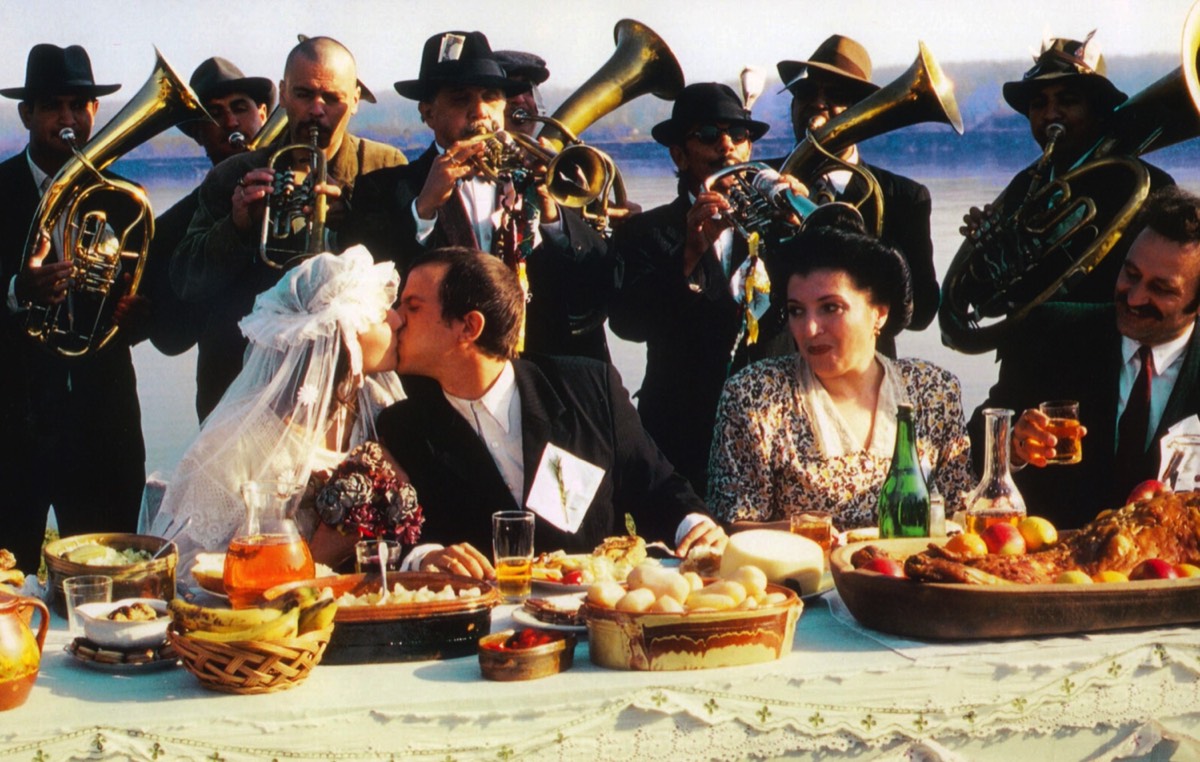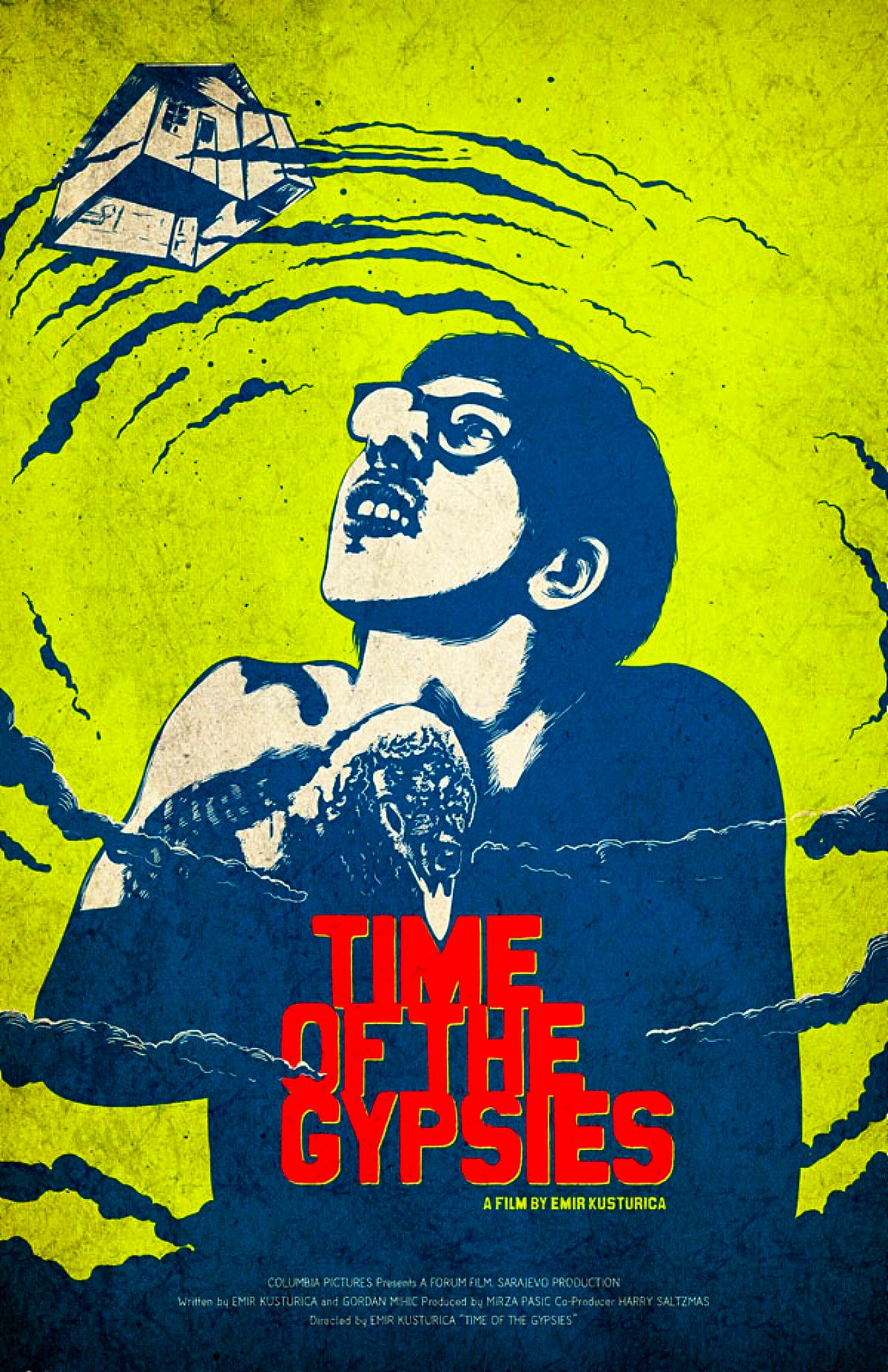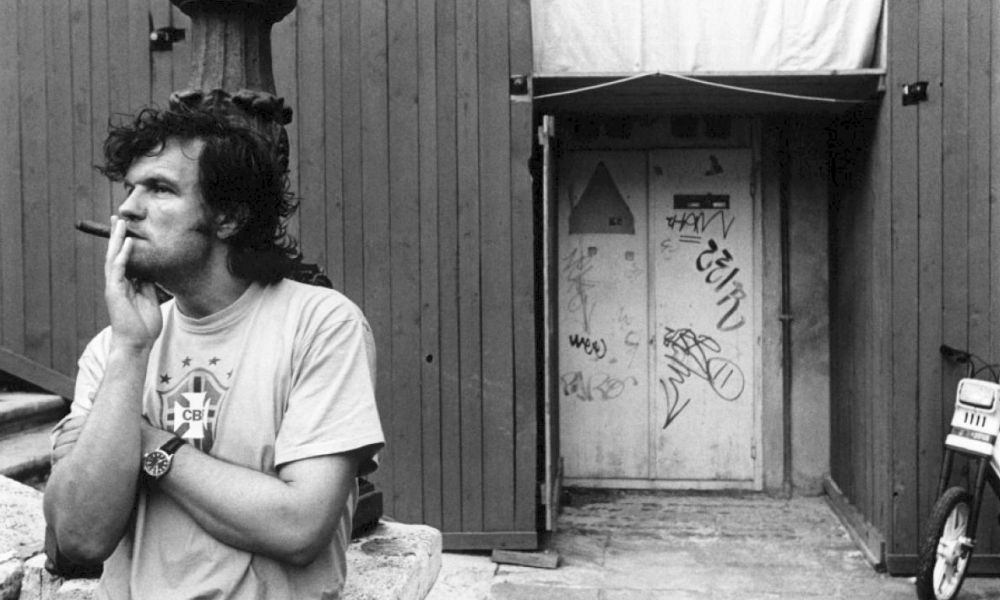"Serbian Emir Kusturica is one of only a handful of directors to receive multiple Palme d'or Awards at the Cannes Film Festival. His work has developed over the years in a true auteurist fashion emphasizing the discipline of an individual vision, and the ferociousness of an untethered imagination." - Nathaniel Carlson (501 Movie Directors, 2007)
Emir Kusturica
Director / Screenwriter
(1954- ) Born November 24, Sarajevo, Bosnia and Herzegovina, Yugoslavia (now Sarajevo, Bosnia and Herzegovina)
Top 250 Directors
(1954- ) Born November 24, Sarajevo, Bosnia and Herzegovina, Yugoslavia (now Sarajevo, Bosnia and Herzegovina)
Top 250 Directors
Key Production Countries: Yugoslavia, France, USA, UK
Key Genres: Drama, Comedy, Romance, Coming-of-Age, Black Comedy, Comedy Drama, Crime, Political Drama
Key Collaborators: Vilko Filac (Cinematographer), Slavko Stimac (Leading Actor), Andrija Zafranovic (Editor), Miki Manojlovic (Leading Character Actor), Mirjana Karanovic (Leading Character Actress), Goran Bregovic (Composer), Miljen Kreka Kljakovic (Production Designer), Predrag Lakovic (Character Actor), Gordan Mihic (Screenwriter), Abdulah Sidran (Screenwriter), Svetolik Zajc (Editor), Srdjan Todorovic (Leading Character Actor)
Key Genres: Drama, Comedy, Romance, Coming-of-Age, Black Comedy, Comedy Drama, Crime, Political Drama
Key Collaborators: Vilko Filac (Cinematographer), Slavko Stimac (Leading Actor), Andrija Zafranovic (Editor), Miki Manojlovic (Leading Character Actor), Mirjana Karanovic (Leading Character Actress), Goran Bregovic (Composer), Miljen Kreka Kljakovic (Production Designer), Predrag Lakovic (Character Actor), Gordan Mihic (Screenwriter), Abdulah Sidran (Screenwriter), Svetolik Zajc (Editor), Srdjan Todorovic (Leading Character Actor)
"In his study The Cinema of Emir Kusturica, critic Goran Gocic writes that the director's work abounds with contradictions, and "potentially strongest among them is the merging of the socially marginal position with an ecstatic experience of life". Long, loud, tumultuous, proudly vulgar and flamboyantly miserablist, Emir Kusturica's oeuvre bears out Gocic's assessment with its inextricable linkage of passion and pain, optimism and cynicism, celebration and squalor." - Jessica Winter (The Rough Guide to Film, 2007)
"Widely regarded as one of the most innovative filmmakers of his generation, Emir Kusturica twice won the Cannes Film Festival Palme d'Or before the age of 40, and, film for film, it is difficult to think of a more consistently lauded artist than this Bosnian-born director. Possessing the persona of a rock star (he once played bass in the agit-rock band No Smoking and still makes guest appearances with them), he is the antithesis of the Hollywood director, viewing the world as a naif or a dreamer and only helming projects that move him strongly… As a result of his unpopular stand regarding the civil war in the former Yugoslavia, however, he finds himself scorned in his own land, literally a director without a country." - Turner Classic Movies

Underground (1995)
"An amateur film-maker, he studied at the Academy of Performing Arts (FAMU) in Prague before making his feature debut with Do You Remember Dolly Bell? (1981). His recent films have addressed the history and divisions in his country and the folly of war, using manic, scattershot narratives that convey a buoyant, passionate humanism. He has also acted, and is a member of the rock band No Smoking." - Chambers Film Factfinder, 2006
"Although celebrated in Europe, French-Serbian moviemaker Emir Kusturica has never quite received his due stateside. This is perplexing because the surrealism that is a trademark of his films seems well-suited for American audiences. He’s won the Palme d’Or twice (the second time for his war film Underground in 1995) and won Best Director at Cannes for the four-and-a-half-hour epic Time of the Gypsies. The propulsive energy and dream logic of his films have earned him a reputation in some circles as the Eastern European Federico Fellini. But Thomas Pynchon may be a better comparison: In one segment of Underground, a rogue monkey occupies a homemade tank and fires live rounds at a wedding party." - Caleb Hammond (MovieMaker, 2020)
"Emir Kusturica’s films radiate a universal humanism. While they come out of a specific part of the world—in which the political situation plays no small role in affecting his characters’ lives—they are timeless stories in that they deal with basic human needs, desires, feelings, and experiences." - Rob Edelman (International Dictionary of Films and Filmmakers, 2000)
"What you have now is a Hollywood that is pure poison. Hollywood was a central place in the history of art in the 20th century: it was human idealism preserved. And then, like any great place, it collapsed, and it collapsed into the most awful machinery in the world." - Emir Kusturica
Selected Filmography
{{row.titlelong}}
GF Greatest Films ranking (★ Top 1000 ● Top 2500)
21C 21st Century ranking (☆ Top 1000)
T TSPDT R Jonathan Rosenbaum
21C 21st Century ranking (☆ Top 1000)
T TSPDT R Jonathan Rosenbaum
Emir Kusturica / Favourite Films
L'Atalante (1934) Jean Vigo.
Source: Sodankylä Ikuisesti: Desert Island Films (1996)
L'Atalante (1934) Jean Vigo.
Source: Sodankylä Ikuisesti: Desert Island Films (1996)
Emir Kusturica / Fan Club
Ed Gonzalez, Baltasar Kormákur, Fernando León de Aranoa, Han Jie, Christina Stojanova, Philip Dodd, Sterlin Harjo, Ricardo Darín, Fábio Yamaji, Jean-Max Mejean, Imtiaz Ali, Robert Sarafian.
Ed Gonzalez, Baltasar Kormákur, Fernando León de Aranoa, Han Jie, Christina Stojanova, Philip Dodd, Sterlin Harjo, Ricardo Darín, Fábio Yamaji, Jean-Max Mejean, Imtiaz Ali, Robert Sarafian.
"Fan Club"
These film critics/filmmakers have, on multiple occasions, selected this director’s work within film ballots/lists that they have submitted.
These film critics/filmmakers have, on multiple occasions, selected this director’s work within film ballots/lists that they have submitted.


